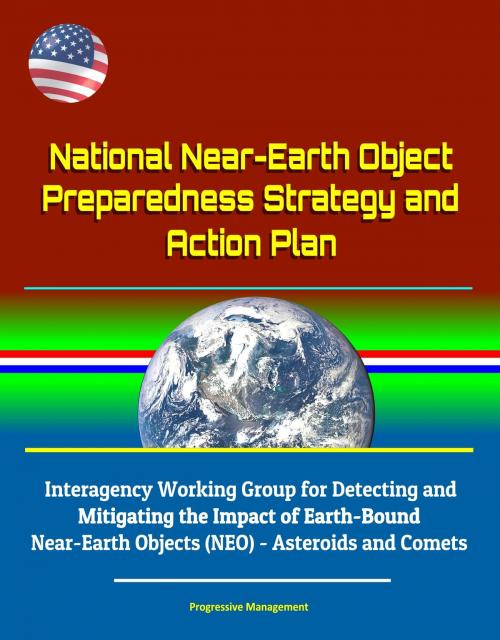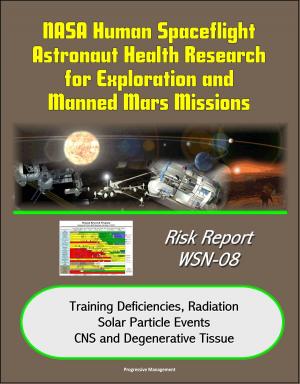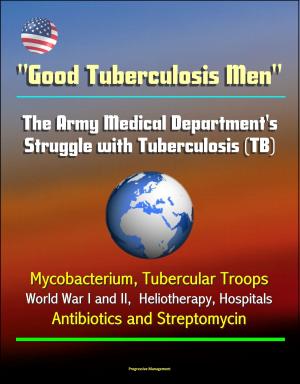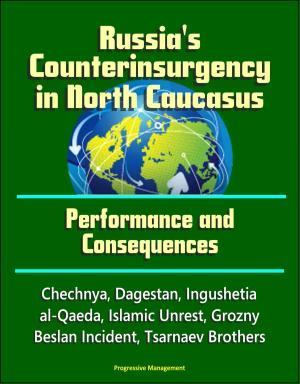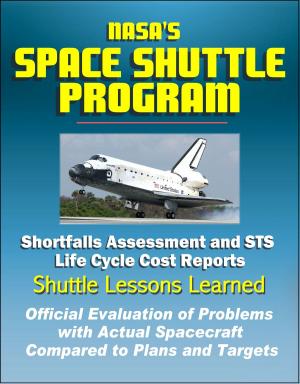National Near-Earth Object Preparedness Strategy and Action Plan - Interagency Working Group for Detecting and Mitigating the Impact of Earth-Bound Near-Earth Objects (NEO) - Asteroids and Comets
Nonfiction, Science & Nature, Technology, Aeronautics & Astronautics, Science, Physics, Astrophysics & Space Science| Author: | Progressive Management | ISBN: | 9780463589021 |
| Publisher: | Progressive Management | Publication: | June 21, 2018 |
| Imprint: | Smashwords Edition | Language: | English |
| Author: | Progressive Management |
| ISBN: | 9780463589021 |
| Publisher: | Progressive Management |
| Publication: | June 21, 2018 |
| Imprint: | Smashwords Edition |
| Language: | English |
This June 2018 report was issued by the Interagency Working Group for Detecting and Mitigating the Impact of Earth-Bound Near-Earth Objects (NEO) and has been professionally converted for accurate flowing-text e-book format reproduction.
The National Near-Earth Object Preparedness Strategy and Action Plan (Strategy and Action Plan) will improve our Nation's preparedness to address the hazard of near-Earth object (NEO) impacts over the next 10 years. Its primary role is to help organize and coordinate NEO-related efforts within Federal Departments and Agencies (agencies), with a particular focus on efforts that are already existing and resourced. It seeks to leverage and enhance existing assets and capabilities—National and international, public and private—to effectively manage the risks associated with NEOs. The Strategy and Action Plan builds on efforts by the National Aeronautics and Space Administration (NASA), Department of Homeland Security (DHS), and Department of Energy (DOE) to detect and characterize the NEO population and to prevent and respond to NEO impacts on Earth.
Five strategic goals, each supported by a set of strategic objectives and specific associated actions, underpin the effort to enhance the Nation's preparedness for potential NEO impacts:
Goal 1: Enhance NEO Detection, Tracking, and Characterization Capabilities: NASA will lead the development of a roadmap for improving national capabilities for NEO detection, tracking, and characterization. Supporting actions will reduce current levels of uncertainty and aid in more accurate modeling and more effective decision-making.
Goal 2: Improve NEO Modeling, Prediction, and Information Integration: Agencies will coordinate the development of validated modeling tools and simulation capabilities that aid in characterizing and mitigating NEO impact risks while streamlining data flows to support effective decision-making.
Goal 3: Develop Technologies for NEO Deflection and Disruption Missions: NASA will lead development of technologies for fast-response NEO reconnaissance missions and timely missions to deflect or disrupt hazardous NEOs. Developing these technologies before an imminent threat arises will strengthen our ability to prevent NEO impact disasters.
Goal 4: Increase International Cooperation on NEO Preparation: Agencies will work to inform and develop international support for addressing global NEO impact risks. International engagement and cooperation will help the Nation to prepare more effectively for a potential NEO impact.
Goal 5: Strengthen and Routinely Exercise NEO Impact Emergency Procedures and Action Protocols: The United States will strengthen and exercise procedures and protocols for assessing NEO threats, communication regarding threats, and response and recovery activities. Coordinated communications and notifications within the U.S. Government and with foreign governments will improve impact emergency preparedness and reduce the physical and economic harm to the Nation.
This June 2018 report was issued by the Interagency Working Group for Detecting and Mitigating the Impact of Earth-Bound Near-Earth Objects (NEO) and has been professionally converted for accurate flowing-text e-book format reproduction.
The National Near-Earth Object Preparedness Strategy and Action Plan (Strategy and Action Plan) will improve our Nation's preparedness to address the hazard of near-Earth object (NEO) impacts over the next 10 years. Its primary role is to help organize and coordinate NEO-related efforts within Federal Departments and Agencies (agencies), with a particular focus on efforts that are already existing and resourced. It seeks to leverage and enhance existing assets and capabilities—National and international, public and private—to effectively manage the risks associated with NEOs. The Strategy and Action Plan builds on efforts by the National Aeronautics and Space Administration (NASA), Department of Homeland Security (DHS), and Department of Energy (DOE) to detect and characterize the NEO population and to prevent and respond to NEO impacts on Earth.
Five strategic goals, each supported by a set of strategic objectives and specific associated actions, underpin the effort to enhance the Nation's preparedness for potential NEO impacts:
Goal 1: Enhance NEO Detection, Tracking, and Characterization Capabilities: NASA will lead the development of a roadmap for improving national capabilities for NEO detection, tracking, and characterization. Supporting actions will reduce current levels of uncertainty and aid in more accurate modeling and more effective decision-making.
Goal 2: Improve NEO Modeling, Prediction, and Information Integration: Agencies will coordinate the development of validated modeling tools and simulation capabilities that aid in characterizing and mitigating NEO impact risks while streamlining data flows to support effective decision-making.
Goal 3: Develop Technologies for NEO Deflection and Disruption Missions: NASA will lead development of technologies for fast-response NEO reconnaissance missions and timely missions to deflect or disrupt hazardous NEOs. Developing these technologies before an imminent threat arises will strengthen our ability to prevent NEO impact disasters.
Goal 4: Increase International Cooperation on NEO Preparation: Agencies will work to inform and develop international support for addressing global NEO impact risks. International engagement and cooperation will help the Nation to prepare more effectively for a potential NEO impact.
Goal 5: Strengthen and Routinely Exercise NEO Impact Emergency Procedures and Action Protocols: The United States will strengthen and exercise procedures and protocols for assessing NEO threats, communication regarding threats, and response and recovery activities. Coordinated communications and notifications within the U.S. Government and with foreign governments will improve impact emergency preparedness and reduce the physical and economic harm to the Nation.
